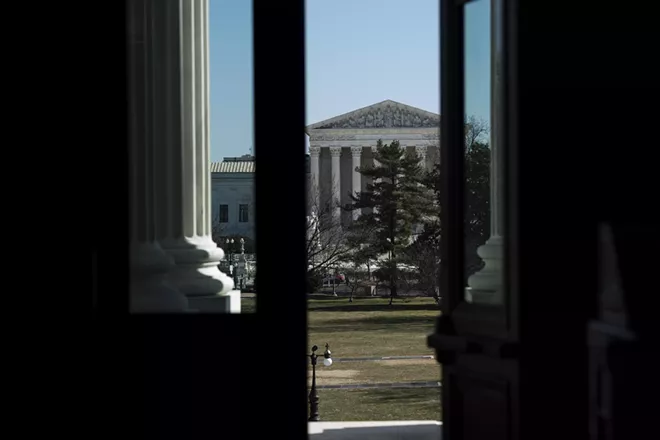
By Adam Liptak
New York Times News Service
WASHINGTON — The Supreme Court returns to the subject of partisan gerrymandering Tuesday, considering for a second time in two years whether drawing election maps to help the party in power can ever violate the Constitution.
Last year’s cases, from Wisconsin and Maryland, raised the possibility that the court might decide, for the first time, that some election maps were so warped by politics that they crossed a constitutional line. Challengers had pinned their hopes on Justice Anthony M. Kennedy, who had expressed ambivalence on the subject, but he and his colleagues appeared unable to identify a workable constitutional test.
The justices instead sidestepped the central questions in the two cases. On Tuesday, almost exactly a year after they last considered the Maryland case, the court will again hear arguments from Republican voters there who said their rights had been violated by a congressional district they said had been drawn to diminish their voting power.
The court will also hear arguments in a second challenge, this one from North Carolina Democrats who said the state’s congressional map yielded a 10-3 Republican majority despite very close statewide vote counts.
A ruling that limited partisan gerrymandering could transform American politics, reshaping House maps in several states, often but not always to the benefit of Democrats. But Kennedy’s replacement by Justice Brett M. Kavanaugh makes such an outcome less likely, election law experts said. Indeed, the court could rule that the Constitution imposes no limits on the practice.
The Supreme Court has ruled that racial gerrymandering can violate the Constitution. But it has never struck down a voting map as an unconstitutional partisan gerrymander.
The court’s decision to hear the new partisan gerrymandering challenges did not signal any particular enthusiasm for addressing the issue. While the court has almost complete discretion in deciding whether to hear most kinds of cases, Congress has made an exception for some disputes concerning elections. In those cases, Supreme Court review is all but mandatory.














